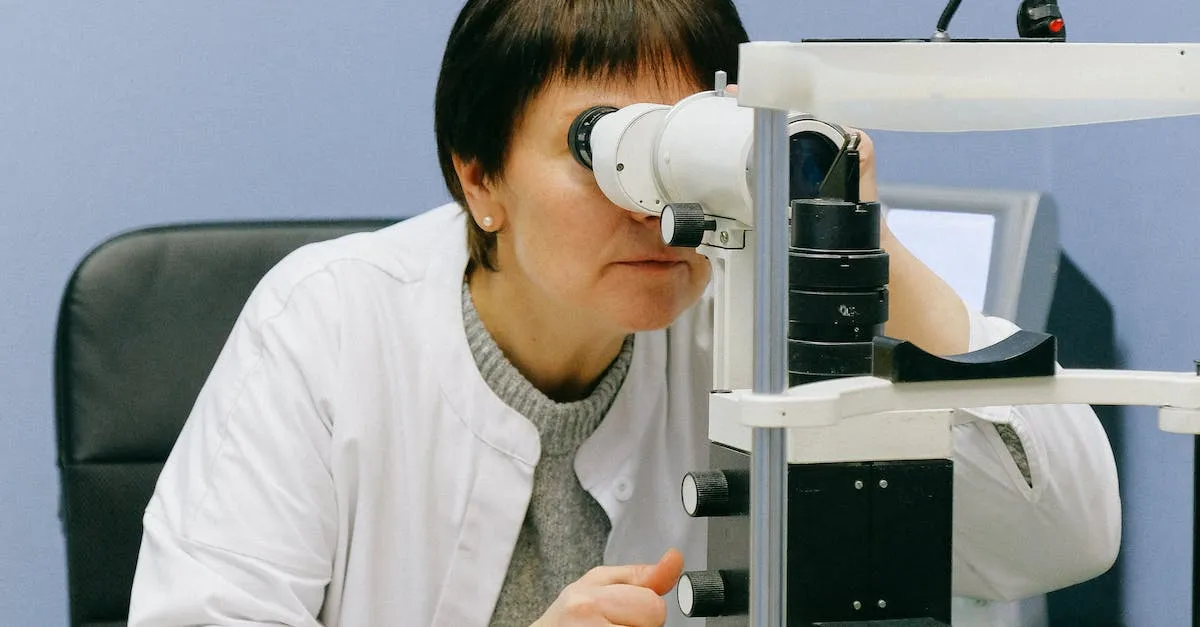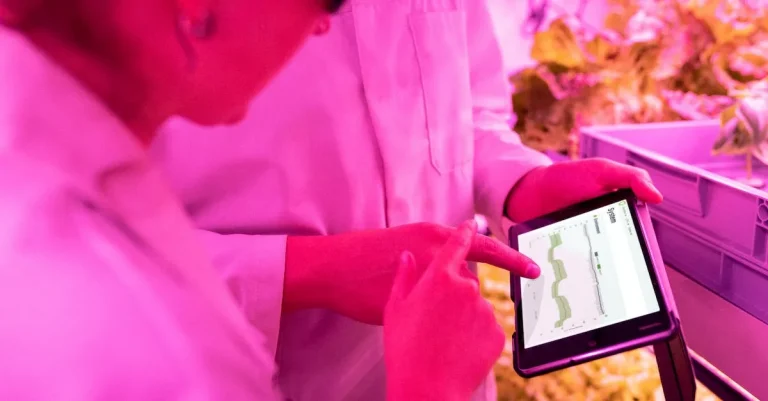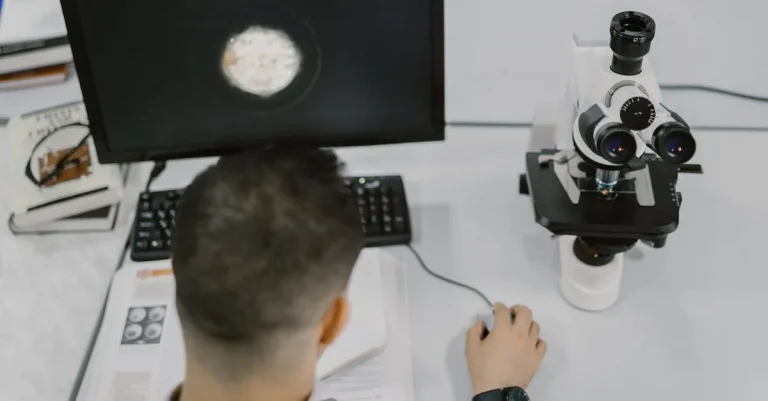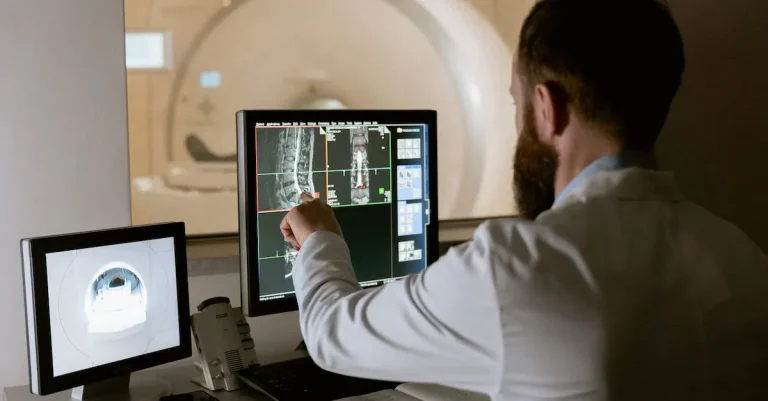Science Jobs You Can Get Without A Degree
In today’s job market, a college degree is becoming less of a hard requirement for many careers. This is especially true in the science field, where hands-on skills and experience are often valued over just having a diploma.
If you have a passion for science but don’t have the time or money for a lengthy degree program, there are still many great career options available.
If you’re short on time, here’s a quick answer to your question: There are a variety of science jobs open to those without degrees, including lab assistant, field technician, data analyst, computer support specialist, science writer, and more.
Experience, certifications, and demonstrated skills can make up for lack of degree.
In this comprehensive guide, we will explore over a dozen science careers you can break into without a 4-year or advanced degree. For each job, we detail the day-to-day responsibilities, skills needed, salary prospects, and tips for getting started in the field without a diploma.
Read on to find the perfect science job that aligns with your interests and abilities!
Lab Assistant/Technician
If you have a passion for science but don’t have a degree, becoming a lab assistant or technician can be a great way to get your foot in the door. Lab assistants work alongside scientists and researchers, providing support and assistance with various experiments and lab procedures.
Job Duties
Lab assistants play a crucial role in the scientific community. Their duties may include:
- Preparing and setting up lab equipment
- Collecting and analyzing samples
- Assisting with experiments and research projects
- Maintaining and cleaning laboratory equipment
- Recording and organizing data
Lab assistants often work in a variety of scientific fields, such as biology, chemistry, or medical research. They may also specialize in specific areas, such as genetics or forensic science.
Required Skills
While a degree is not required for this position, lab assistants still need to possess certain skills and qualifications. These may include:
- Strong attention to detail
- Good organizational skills
- Ability to follow instructions and protocols
- Basic knowledge of laboratory procedures and safety protocols
- Ability to work well in a team
Lab assistants also need to have good communication skills and be able to effectively communicate their findings to the scientists or researchers they are assisting.
Salary and Job Outlook
The salary for lab assistants can vary depending on factors such as experience and location. According to the Bureau of Labor Statistics, the median annual wage for medical and clinical laboratory technicians was $53,120 as of May 2020.
The job outlook for lab assistants is also promising, with a projected growth rate of 7% from 2020 to 2030.
Getting Started Without a Degree
If you’re interested in becoming a lab assistant without a degree, there are a few steps you can take to get started:
- Gain relevant experience: Look for internships or entry-level positions in laboratories or research facilities. This will allow you to gain hands-on experience and make valuable connections in the field.
- Obtain certifications: While not always required, obtaining certifications in areas such as laboratory safety or specific laboratory techniques can make you a more competitive candidate.
- Continuing education: Consider taking courses or workshops to further develop your skills and knowledge in the field. Many community colleges and online platforms offer courses specifically designed for lab assistants.
- Network: Attend industry events, join professional organizations, and connect with professionals in the field. Networking can open doors to job opportunities and provide valuable guidance and mentorship.
While a degree may not be necessary to start as a lab assistant, it’s important to note that further education and advancement opportunities may require a higher level of education. However, starting as a lab assistant can be a stepping stone towards a rewarding career in the scientific field.
Field Technician
A field technician is a science job that you can pursue without a degree. Field technicians play a crucial role in various industries, including environmental science, agriculture, telecommunications, and more.
They are responsible for conducting fieldwork, collecting data, and assisting with various research projects.
Job Duties
Field technicians are typically tasked with a range of responsibilities depending on the industry they work in. For example, in environmental science, they may collect samples of soil, water, or air to analyze for pollutants.
In agriculture, they may assist with crop monitoring, soil testing, or pest control. In the telecommunications industry, they may be responsible for installing and maintaining equipment or troubleshooting network issues in the field.
Required Skills
While a degree is not mandatory for a field technician role, certain skills are essential for success in this profession. Strong problem-solving skills, attention to detail, and the ability to work independently are crucial.
Field technicians should also possess good communication skills, as they often need to interact with clients, team members, or researchers. Additionally, depending on the industry, specific technical skills or certifications may be required.
Salary and Job Outlook
The salary of a field technician can vary depending on the industry and level of experience. According to the Bureau of Labor Statistics, the median annual wage for environmental science and protection technicians, which includes field technicians in the environmental science field, was $46,170 in May 2020.
The job outlook for field technicians varies by industry, but overall, it is projected to grow at a steady pace in the coming years.
Getting Started Without a Degree
If you’re interested in becoming a field technician without a degree, there are several paths you can take. One option is to gain relevant experience through internships or entry-level positions in the industry you wish to work in.
This will allow you to learn on the job and build a network of professionals in the field. Additionally, there are certification programs available that can enhance your skills and make you more competitive in the job market.
Websites like Field Technologies offer resources and information for aspiring field technicians.
Data Analyst
A data analyst is a professional who collects, analyzes, and interprets large sets of data to help businesses make informed decisions. They play a crucial role in various industries, including finance, marketing, healthcare, and technology.
Job Duties
As a data analyst, your main responsibility is to gather and organize data from various sources. You will use statistical techniques and software tools to analyze the data and identify patterns, trends, and insights.
These findings are then used to develop reports, visualizations, and recommendations for decision-makers.
Additionally, data analysts often collaborate with other teams, such as marketing or finance, to support their data-driven initiatives. They may also be responsible for data cleansing, data validation, and data quality assurance to ensure accurate results.
Required Skills
While a degree in data science or a related field can provide a strong foundation, it is possible to become a data analyst without a degree. Employers typically look for candidates with a strong analytical mindset, excellent problem-solving skills, and proficiency in programming languages such as Python or R.
Other essential skills for a data analyst include knowledge of statistics, data visualization tools, and database management. Being able to communicate complex findings in a clear and concise manner is also crucial in this role.
Salary and Job Outlook
The salary of a data analyst can vary depending on factors such as experience, location, and industry. According to the Bureau of Labor Statistics, the median annual wage for data analysts was $85,260 in May 2020.
The job outlook for data analysts is also promising, with a projected growth rate of 31% from 2019 to 2029, which is much faster than the average for all occupations.
Getting Started Without a Degree
If you don’t have a degree in data science, there are several steps you can take to start a career as a data analyst. One option is to acquire relevant certifications, such as the Microsoft Certified: Data Analyst Associate or the Google Data Analytics Professional Certificate.
These certifications demonstrate your proficiency in data analysis tools and techniques.
Another approach is to gain practical experience through internships, freelance projects, or volunteering opportunities. Building a portfolio of projects showcasing your data analysis skills can help you land your first job as a data analyst.
Networking is also crucial in the field of data analysis. Attend industry events, join online communities, and connect with professionals in the field to expand your opportunities and learn from experienced data analysts.
Remember, while a degree can be beneficial, it is not the only path to becoming a successful data analyst. With the right skills, experience, and determination, you can excel in this in-demand field.
Computer Support Specialist
Computer support specialists are professionals who provide technical assistance to computer users. They help individuals and organizations troubleshoot and resolve computer-related issues. This job is a great option for those who are passionate about technology and enjoy problem-solving.
Job Duties
As a computer support specialist, your main responsibility is to assist computer users with their technical problems. This may include troubleshooting hardware and software issues, installing and configuring computer systems, and providing guidance on how to use different applications.
You will also be responsible for maintaining computer networks, ensuring that they are operating efficiently and securely. This may involve monitoring network performance, identifying potential security threats, and implementing appropriate measures to protect data.
Required Skills
To excel in this role, you need to have strong technical skills and knowledge of computer systems and software. Being able to diagnose and resolve technical issues quickly and efficiently is crucial. Additionally, excellent communication and customer service skills are essential, as you will be interacting with users who may not have a technical background.
While a degree is not always required for this position, having relevant certifications, such as CompTIA A+ or Microsoft Certified Solutions Associate (MCSA), can give you an advantage in the job market.
Salary and Job Outlook
The salary of a computer support specialist can vary depending on factors such as experience, location, and industry. According to the Bureau of Labor Statistics, the median annual wage for computer support specialists was $54,760 in May 2020.
The job outlook for this profession is also promising, with a projected growth rate of 8% from 2019 to 2029, which is faster than the average for all occupations.
Getting Started Without a Degree
If you don’t have a degree but are interested in pursuing a career as a computer support specialist, there are several paths you can take. One option is to gain practical experience through internships or entry-level positions.
This will allow you to learn on the job and acquire the necessary skills and knowledge.
Another option is to obtain relevant certifications. These certifications demonstrate your expertise in specific areas of computer support, making you a more attractive candidate to employers. There are many online courses and training programs available that can help you prepare for these certification exams.
Lastly, networking and building connections in the industry can also be beneficial. Attending industry events, joining professional associations, and connecting with professionals in the field can open doors to job opportunities and provide valuable insights and advice.
While a degree can certainly be advantageous, it is not always a requirement for a successful career as a computer support specialist. With the right skills, certifications, and experience, you can build a rewarding career in this field.
Science Writer
Science writing is a fascinating career path that allows individuals to combine their passion for science with their excellent writing skills. As a science writer, you have the opportunity to communicate complex scientific concepts in a way that is easy for the general public to understand.
This is a great job for those who have a knack for distilling complex information into engaging and accessible content.
Job Duties
The primary responsibility of a science writer is to research and write articles, blog posts, or reports about scientific topics. This could include anything from breaking news in the field of biology to explaining the latest discoveries in astrophysics.
Science writers often work closely with scientists and researchers to gather information and ensure accuracy in their writing. They may also be responsible for conducting interviews, attending conferences, and reviewing scientific papers.
Required Skills
To excel as a science writer, it is important to have a strong background in science and a passion for research. While a degree in a scientific field is not always required, having a solid understanding of scientific principles and the ability to comprehend complex research papers is essential.
Additionally, excellent writing skills, including the ability to write in a clear and engaging manner, are crucial. Science writers should also have strong communication skills, as they often need to explain complex concepts to a non-scientific audience.
Salary and Job Outlook
The salary of a science writer can vary depending on factors such as experience, location, and the type of employer. According to the Bureau of Labor Statistics, the median annual wage for technical writers, which includes science writers, was $72,850 in May 2020.
The job outlook for science writers is expected to grow at a rate of 7% from 2019 to 2029, which is faster than the average for all occupations. With the increasing demand for science-related content in various media outlets, there are ample opportunities for aspiring science writers.
Getting Started Without a Degree
While having a degree in a scientific field can be beneficial, it is possible to get started as a science writer without one. One way to gain experience is by volunteering to write for scientific organizations or websites. This will allow you to build a portfolio and demonstrate your writing skills.
Additionally, taking online courses or attending workshops on science writing can help you develop the necessary skills and knowledge. Networking with scientists and other science writers can also open doors to potential opportunities.
Website: For more information on science writing, you can visit https://www.nasw.org/
Conclusion
While a science degree can open doors to specialized careers, it is still possible to find rewarding work in the field armed with the right skills, experience, and drive to succeed. The jobs profiled here are just a sampling of the many possibilities out there.
With some targeted preparation and networking, you can gain a foothold in an exciting science career without years of higher education.
The key is to play up the assets you do have – relevant work history, scientific aptitude, communication and tech skills, etc. – when selling yourself to potential employers. Look for openings at companies and organizations that value real-world experience as much as academic credentials.
With persistence and ingenuity, you can craft a personalized path to an engaging, well-paying science job even without a diploma.







